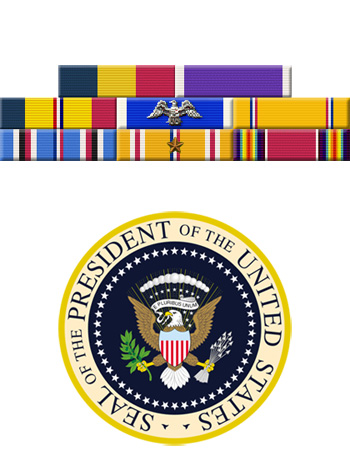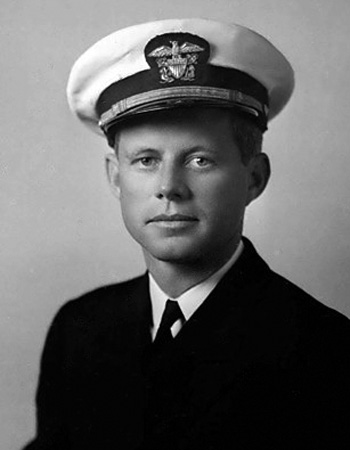
|
John F. Kennedy, Jr. |
 |
|||
| Rank, Service | ||||
Lieutenant O-3, U.S. Navy |
||||
| Veteran of: | ||||
|
||||
| Tribute: | ||||
Jack Kennedy was born on May 29, 1917, in Brookline, Massachusetts. After graduating from Harvard University in 1940, he was commissioned an Ensign in the U.S. Navy on October 26, 1941. Kennedy served in the Office of Naval Intelligence from October 1941 to January 1942, and after receiving Navy Reserve Officer training and Motor Torpedo Boat training, he was assigned to Motor Torpedo Squadron FOUR as the commander of PT-101 from December 1942 to February 1943. Kennedy transferred to Motor Torpedo Squadron TWO in April 1943, and took command of PT-109 the same month. His boat was rammed by a Japanese destroyer on the night of August 1-2, 1943, and he and his crew were rescued on August 8, 1943. Kennedy then commanded PT-59 from September to November 1943, before returning to the United States. He went through additional Motor Torpedo Boat training in February and March 1944, and Submarine Chaser training from March to October 1944. After being hospitalized, Kennedy was medically retired from the Navy on March 1, 1945. After the war, Kennedy was elected to the U.S. House of Representatives from Massachusetts' 11th District where he served from January 1947 to January 1953. He then served as a United States Senator from Massachusetts from January 1953 until December 1960, resigning his seat after winning the 1960 Presidential Election. Kennedy served as President of the United States and Commander-in-Chief from January 20, 1961, until he was assassinated on November 22, 1963. He is buried in Arlington National Cemetery. |
||||
|
||||

